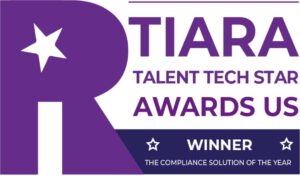Workplace harassment has become an increasingly common occurrence for employees across the nation. According to research and advisory firm Gallup, nearly one-quarter of workers have personally experienced physical, psychological, or sexual violence or harassment at work.
When employees are harassed at work, many are advised to report the incident to their HR department. However, what happens when HR professionals are the targets of that harassment?
In a study of 102 HR professionals, results show that 31.4% of them reported having been bullied at work. If you’re an HR professional who has found yourself in this unfortunate situation, this guide will help you learn to recognize the signs of harassment; document, report, and investigate the incident according to company protocols; and build a culture of positivity and respect for all.
Recognize Workplace Harassment
As an HR professional, you are likely trained to recognize when employees are harassing each other. However, because HR professionals may be used to handling strong employee emotions when something doesn’t go their way, you may not even realize when someone is bullying or harassing you.
Before you can deal effectively with harassment, it’s crucial that you be able to recognize it. One of the hallmarks of workplace harassment is that the conduct is severe or pervasive enough to create a workplace environment that any reasonable person would deem hostile or intimidating.
This may include verbal abuse, retaliation, or discriminatory actions due to your role in enforcing policies. These actions may come from any direction, including employees you supervise and those who have authority over your role.
Document Incidents
It’s crucial that you document all of your harassment experiences. This establishes a credible record of events and can support internal investigations or external probes. It can also serve as evidence that the perpetrator is displaying a harmful behavior pattern, further strengthening your case.
Take detailed notes, including dates, times, and locations of each incident. Clearly state which individuals were involved and the actions that you believe constitute harassment. If there are any eyewitnesses, consider asking if they would be willing to give statements about what they have seen. Also, don’t forget to collect any physical evidence you have, such as audio or video recordings or emails.
Follow Reporting Protocols
After you have thoroughly documented the incident, you should report it as soon as possible to the proper authorities. Ideally, you should have company protocols for reporting harassment. If there are policies in place, make sure you use those established avenues for reporting your experience.
When submitting your report, follow all laws regarding confidentiality and fairness. This is especially important for HR professionals, given your access to sensitive employee information.
It’s also important to ensure a neutral yet thorough investigation into all claims. While you will be involved in the investigation as a witness, it’s important that you aren’t the one conducting that investigation. This reduces the likelihood of having to deal with any claims of bias.
Strengthen Your Policies
Having strong anti-harassment policies is what sets the tone for a culture where everyone feels valued and respected in the workplace. After the incident, be sure to review your anti-harassment policies to ensure that all employees are clear on what behaviors are prohibited in the workplace and what values they are expected to demonstrate.
Additionally, you may want to consider implementing anti-harassment training for all of your employees. Even if this is already a requirement for your onboarding program, providing employees with a refresher can remind everyone of the importance of treating colleagues well and maintaining a positive work environment.
Take Advantage of Resources
It’s essential to acknowledge that workplace harassment can take an emotional toll on employees. Don’t forget to take care of yourself by strengthening your support systems and finding ways to protect your mental health.
This may include availing yourself of the same resources that you may provide to employees, such as external mediation. You may also want to seek out counseling, especially with a professional who is well-versed in helping clients through traumatic workplace experiences.
Everyone Deserves to Feel Valued and Protected at Work
HR professionals play a valuable role in their organizations. Federal laws state that every employee is entitled to a workplace free from bullying and harassment, including those who shape workplace policies around this issue.
VirgilHR’s intuitive, AI-powered platform makes it easy to build and strengthen your anti-harassment policies and protocols to ensure a safe work environment for all. You’ll get easy access to updated compliance regulations and expert guidance when you need it. Schedule a demo to see how VirgilHR can help you build the foundation for a positive and respectful culture.






